Swiss-EU savings tax deal faces delay
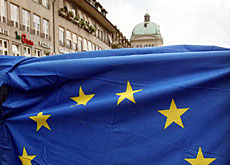
Swiss and European Union officials have ironed out remaining differences over a package of nine bilateral treaties.
But uncertainty remains over whether Switzerland can ratify the accord on the taxation of EU residents’ savings in time for it to come into force on January 1.
On Thursday the Swiss Integration Office said it was ready to initial all the treaties.
But EU officials repeated that they would not proceed unless Switzerland did all it could to ratify the taxation of savings accord ahead of January 1.
Last month Switzerland wrapped up more than two years of negotiations on a package of nine accords after Brussels agreed to guarantee Swiss banking secrecy in exchange for Bern’s cooperation in taxing EU residents’ savings.
The EU has made it clear that it would like to implement the savings tax accord at the beginning of next year.
But the Swiss argue that this deadline is unrealistic because the accords have first to be debated by parliament, something which is not expected to happen before the end of the year.
Swiss voters are also likely to be given the final say in a nationwide vote on whether to accept the package of accords.
Waiting game
At a meeting in Brussels last week, EU finance ministers said they were waiting for a clear signal from the Swiss government.
“We are now awaiting Swiss proposals,” said EU officials. “We have always said that January 1 was an important date.”
On Monday the Swiss government said the accords would be presented to parliament separately rather than as a single package.
The Swiss president, Joseph Deiss, has stressed that the aim is to ratify the treaties as soon as possible.
But even if debate is wrapped up by the end of the year, the government will still have to wait for a period of three months to see if those opposed to the treaties launch a referendum against them.
“The inescapable fact is that Switzerland cannot meet the January deadline,” said Roger Kaiser, tax adviser at the European Banking Federation, which represents 20 national bank associations.
Three options
Analysts say three options are open to the Swiss if they wish to comply with the EU deadline.
The government could implement the taxation accord on a provisional basis. It could consider applying the treaty retrospectively.
The government also has the power to enact the legislation before the three-month referendum deadline expires, though this would run the risk that the accords could be turned down by Swiss voters at a later date.
Deiss said no decision had yet been taken on whether or how to try and speed up the political process and has cautioned that Switzerland could miss the deadline.
The EU’s executive arm now has until the end of the month to decide whether the launch date should be postponed.
Swiss and European banks are unlikely to be disappointed by the delay. They have already requested that implementation be put back to give them more time to prepare themselves.
swissinfo
The nine dossiers which make up the second set of Swiss-EU bilateral accords include:
Closer cooperation on security and asylum (Schengen/Dublin).
The fight against international smuggling and other forms of customs fraud.
Taxation of EU residents’ savings income in Swiss banks.
Education and vocational training programmes.
Membership of the European Environmental Agency.
Media – film production, distribution and training.
Free trade of processed agricultural products, such as chocolate, biscuits and pasta.
Access to pan-European statistics.
A second round of bilateral negotiations between the EU and Switzerland was concluded on May 19.
Eight of the nine treaties must be ratified by parliament, leaving only the accord on education and vocational training programmes in the government’s hands.
The president, Joseph Deiss, has set June 11 as the final date to initial the agreements.
The accords could be ratified in December, but a three-month period allowing citizens to launch a referendum means they will probably not be implemented as planned on January 1, 2005.

In compliance with the JTI standards
More: SWI swissinfo.ch certified by the Journalism Trust Initiative
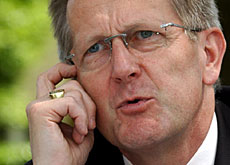
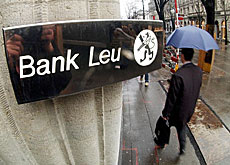
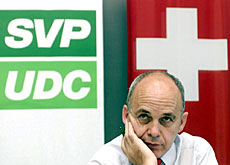
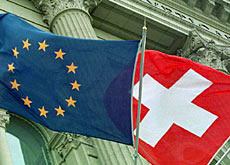
You can find an overview of ongoing debates with our journalists here. Please join us!
If you want to start a conversation about a topic raised in this article or want to report factual errors, email us at english@swissinfo.ch.